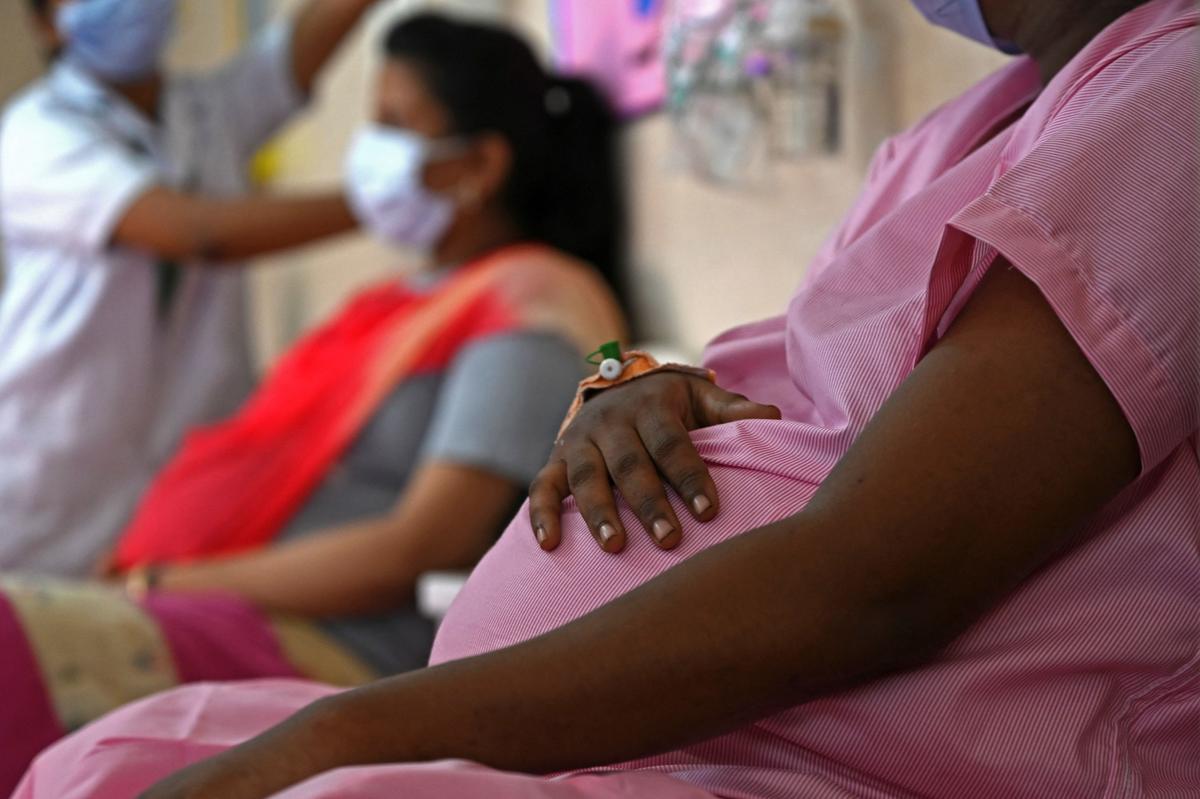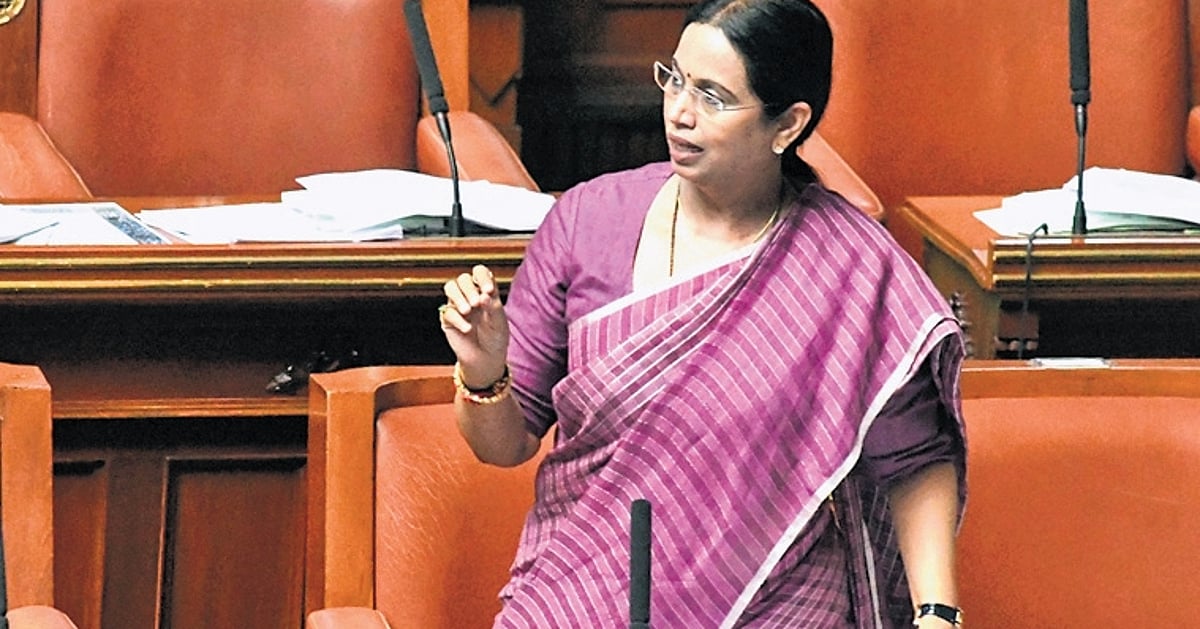Karnataka is confronting an alarming and deeply emotional societal challenge—a 54 percent surge in teenage pregnancies spanning the last three years. Women and Child Welfare Minister Laxmi Hebbalkar revealed that reported cases rose dramatically from 405 in 2022–23 to 709 in 2023–24, before easing slightly to 685 in 2024–25, totaling a sharp increase over the period. This trend has ignited concern across the political and civic spectrum, as the state grapples with complex factors such as social media exposure, weak family structures, child marriages, and lack of awareness around sexual and reproductive health.
Amid mounting backlash, several MLAs urged the government to assert stronger regulation over social media content, suggesting this could help curb such troubling youth behavior. The minister acknowledged that while the numbers appear alarming, they may still be underreported—given secrecy surrounding teen pregnancies and limited data from private healthcare sectors. Observers note that without accurate and comprehensive reporting, the true magnitude of the issue may remain hidden, hampering effective intervention.
Health experts warn that adolescent pregnancy comes with severe health, social, and economic costs. Mothers below the age of 18 face higher risks of malnutrition, delivery complications, and infant mortality, while their educational and career prospects often plummet. Activists and healthcare professionals are pressing for urgent investments in sex education, mental health support, and community-level counseling to prevent further escalation.
The surge in teenage pregnancies has also drawn attention to gaps in Karnataka’s legal awareness among young people. Many teenagers, especially in rural areas, are unaware of laws that protect them, such as the POCSO Act and child marriage laws. This lack of awareness leaves them vulnerable to coercion and exploitation. Government agencies and NGOs are now being urged to run targeted legal literacy programs in schools and communities, using language and formats that adolescents can understand. Providing this knowledge early could empower teenagers to seek help when needed and make informed decisions about their lives.
Another growing concern is the glamorization of risky behavior in popular media. Movies, television shows, and influencers on social platforms often portray relationships and intimacy without addressing consequences such as pregnancy or sexually transmitted infections. Adolescents, still developing their critical thinking skills, may internalize these portrayals as realistic. Media watchdog groups have suggested partnering with filmmakers and content creators to promote responsible narratives that balance romantic themes with messages about consent, contraception, and responsibility. This approach, they argue, could complement school-based education by reinforcing healthy norms in entertainment.
State health officials are also exploring the idea of confidential helplines and mobile apps specifically for teenagers. These tools would allow young people to seek advice, report exploitation, or learn about reproductive health without fear of exposure. By integrating such services with government health schemes, authorities hope to bridge the gap between awareness and action. Experts believe that creating safe, anonymous platforms could be especially impactful for girls in conservative families, where open discussions about sexuality are discouraged.
Ultimately, the fight against teenage pregnancies in Karnataka will require a multi-pronged, sustained effort that combines education, healthcare access, legal enforcement, and cultural change. The government’s acknowledgment of social media as a contributing factor is just the first step; translating this recognition into concrete action is critical. Only through coordinated work between policymakers, educators, parents, healthcare providers, and community leaders can the state hope to reverse the current trend. Failure to act decisively risks not only the futures of thousands of young girls but also the broader social and economic health of Karnataka.

Social Media, Family Instability, and Awareness Gaps
Many of the newborns involved are born into fragile family situations or environments lacking parenting support—settings where online content and peer pressure fill a dangerous void. Minister Hebbalkar and child-rights officials believe that unsupervised consumption of social media can accelerate emotional decisions, leading teenagers into early, unprotected relationships. The minister called for structured life-skills training and internet safety awareness to be integrated into adolescent support systems.
Complicating matters further are instances of child marriage and sexual abuse—risks that adolescent girls in vulnerable regions of Karnataka face disproportionately. These factors, combined with low awareness about contraception and legal rights, contribute to the sustained rise in teen pregnancies. The government has responded by planning sex education programs, mental health outreach, and legal literacy campaigns through schools and community centers.
The sharp surge in teenage pregnancies has also forced policymakers to examine the quality and accessibility of healthcare facilities in rural areas. Many districts in Karnataka still lack adolescent-friendly clinics, trained counselors, and confidential services for minors. Girls often avoid seeking medical help due to fear of stigma, parental backlash, or lack of awareness about their rights. This gap in the healthcare system means that many pregnancies are detected late, leaving little time for safe interventions. Health activists stress that creating youth-specific spaces within government hospitals could drastically improve early reporting and prevention efforts.
Another significant factor, according to experts, is the changing nature of peer relationships among teenagers. The influence of digital communication platforms has reshaped how adolescents interact, form attachments, and navigate intimacy. Social media algorithms often expose young users to romantic or sexualized content far beyond their maturity level, encouraging imitation without an understanding of consequences. Without strong digital literacy programs in schools, young people remain vulnerable to such influence. Campaigners argue that parental engagement must extend beyond restricting internet use—it should involve open conversations about values, consent, and responsible behavior.
In many cases, the pregnancies reported are the result of sexual exploitation by adults, sometimes by people in positions of trust. Such incidents often go unreported due to social pressure and the reluctance of families to involve law enforcement. The Protection of Children from Sexual Offences (POCSO) Act mandates strict action against offenders, but in rural and semi-urban areas, cases are frequently settled informally. This denies justice to victims and emboldens predators. Rights groups have urged the state to strengthen police training, community awareness, and victim support services to ensure that legal protections are effectively enforced.
The economic fallout of teenage pregnancies also deserves attention. Girls who become mothers at a young age often drop out of school, drastically limiting their career prospects. Without education or vocational skills, many become trapped in low-paying work or economic dependency. This in turn perpetuates cycles of poverty across generations. Development experts warn that addressing teenage pregnancies is not only a health and social priority but also an economic necessity for Karnataka’s long-term growth. Investing in prevention and rehabilitation could save the state significant future costs in welfare and healthcare.
Cultural attitudes towards early marriage remain another challenge in curbing adolescent pregnancies. In some communities, especially in rural Karnataka, teenage girls are still married off under the belief that it ensures security or upholds family honor. Despite laws against child marriage, weak enforcement and social acceptance continue to undermine progress. State officials have proposed strengthening grassroots monitoring committees and offering financial incentives for families that keep girls in school until they reach adulthood. Such measures, if implemented with sincerity, could break long-standing traditions that harm young lives.

A Critical Turning Point in Public Health Policy
With numbers still rising—and perhaps undercounted—the state stands at a critical crossroads. The government must now decide whether to respond with faint, reactive gestures, or embrace bold, preventive strategies backed by resources. If Karnataka can build coalitions between schools, social services, NGOs, and healthcare providers, it may turn the tide. But if ignored, these numbers could entrench cycles of poverty, ill-health, and limited opportunity for the next generation.
Karnataka’s 54% rise in teenage pregnancies over three years is a compelling alarm—one that calls for more than political speeches. With social media, disrupted family structures, and legal neglect stoking risky adolescent behavior, the state must deliver a nuanced yet decisive policy response. This means scaling up access to adolescent health services, expanding sex-education in vernacular schools, enforcing child-marriage laws, and regulating digital platforms. The trends may have peaked—685 cases last year—but without sustained efforts, those numbers threaten to rise again. At this juncture, Karnataka has an opportunity to reclaim its children’s future through compassion, clarity, and a commitment to their rights and well-being.
Teachers and school administrators are increasingly recognized as key players in prevention. Educators are often the first to notice behavioral changes or signs of distress in students. However, many lack the training or confidence to address topics like reproductive health and consent. Education departments are being urged to introduce structured teacher training programs, ensuring that discussions about relationships, boundaries, and health are normalized rather than avoided. Equipping schools to be safe spaces for open dialogue could serve as a frontline defense against teenage pregnancies.
The role of boys and young men in preventing teenage pregnancies is equally crucial but often overlooked. Campaigns typically focus on girls’ protection and education, leaving boys without adequate guidance on responsibility, respect, and consent. Experts argue that comprehensive sex education must include young men as active participants in promoting healthy relationships and preventing exploitation. Encouraging respectful behavior and shared responsibility could help shift societal norms in a more equitable direction.
Mental health support is another missing link in the fight against teenage pregnancies. Adolescents facing emotional distress, family conflict, or peer pressure often make impulsive decisions without considering long-term consequences. Unfortunately, mental health services for teenagers are scarce, particularly in rural areas. Integrating counselors into schools, community centers, and healthcare facilities could provide the emotional support needed to guide young people through difficult circumstances. This could significantly reduce risky behavior and promote healthier choices.

Religious and community leaders also have a unique role to play in shaping public attitudes. Their influence can either reinforce harmful norms or promote progressive change. In recent years, some leaders have taken a stand against child marriage and advocated for education as a path to empowerment. If more voices within these influential circles joined forces to address teenage pregnancies, awareness campaigns could reach communities that government programs often struggle to access.
Finally, data transparency remains a pressing need. Without accurate, up-to-date statistics on teenage pregnancies, policymakers cannot design targeted interventions. Civil society organizations have called for a centralized reporting system that includes both public and private healthcare providers. This would allow authorities to identify hotspots, allocate resources effectively, and measure the impact of policies. Regular public reporting could also create accountability, ensuring that the issue remains a visible priority for the state.
Follow: Karnataka government
Also read: Home | Channel 6 Network – Latest News, Breaking Updates: Politics, Business, Tech & More

